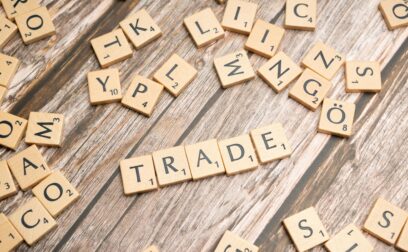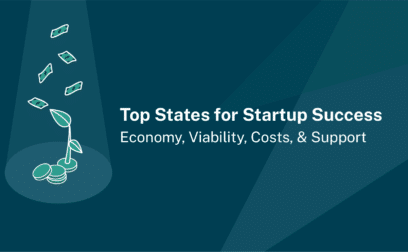TABLE OF CONTENTS
Thousands of US SMEs use heavy equipment to provide the services and products they sell, and these big machines can come in every shape and type.
Page written by Chris Godfrey. Last reviewed on December 13, 2024. Next review due October 1, 2026.

However, as different as they may be, you’ll find that many of them are paid for with a heavy equipment lease, the go-to choice of funding for XXL machinery. Forget about paying for heavy equipment with cash. Pay over time with a flexible, low or no deposit lease to protect your valuable working capital and grow your business faster.
Heavy equipment means self–propelled, self-powered, or pull-type equipment and machinery, including engines, weighing 5000 pounds or more. These types of equipment are primarily for construction, industrial, maritime, mining and forestry use, and they include earth-scrapers, backhoes, front-loaders, steer-loaders, dump trucks, cranes, asphalt and concrete equipment, treaded tractors, and more.
Heavy equipment can make a big impact on an organization’s performance, often moving mountains in a fraction of the time it would take with small machines. However, great as they are, these mechanical giants do not come cheap. A sticker price of more than $1million for some of the biggest machines is commonplace. Using valuable working capital to pay this kind of sum on equipment that depreciates does not make business sense – which is why most US SMEs prefer to lease their heavy equipment, allowing them to pay over time and preserve their liquid cash for other productive activities.
Although financing and leasing both allow you to pay for your heavy equipment in fixed monthly instalments and protect working capital, there are significant differences between these types of funding:
Finance: This is a loan that allows you to pay for your heavy equipment over time and spread the cost across months or years. At the end of the loan, you own the equipment outright. However, heavy equipment finance typically comes with higher payments than leasing, may leave you stuck with obsolete machinery at the end of the loan, and is often less tax efficient than a lease.
Lease: Similar to a loan, except you are not buying the heavy equipment, you are renting it over an extended period. At the end of the contract, the machinery will either go back to the lessor (equipment provider), or the lessee (you) may have the option to buy it for a pre-agreed sum, (sometimes as little as $1). Depending on the terms of the contract, the lessor may be responsible for maintenance of the equipment. Heavy equipment leases usually come with lower monthly payments than financing, but with the same support to cashflow. They can also be very quick to arrange, and do not appear on the company balance sheet. In most cases, the entire payments (not just the interest) can be written off as a fully tax-deductible expense.
Your financial plan will determine which method of heavy equipment funding is best for you. If you want to add the equipment to your balance sheet and own it outright as soon as the loan is paid off, a finance loan may be the way to go. However, if you want the lowest monthly payments, the biggest tax deduction, the option to buy or return the equipment when the contract ends, and you wish to avoid the potential liability of owning obsolete machinery, a flexible, heavy equipment lease may be best for you.
Heavy equipment leasing is a specialist financial area with differing rules of application and requiring deep knowledge of many business sectors from the lender. US SMEs seeking funding may find themselves forever searching and making applications to lender after lender without success. The delays this can create could cause them to lose revenue and leave their business vulnerable to competition. Instead, working with a broker, who can access heavy equipment leasing from a wide range of lenders is a better way to go. No more cold calls and endless demands for information, just tell us what you need and leave the rest to us.
Go big – and give your business the heavy equipment it needs to grow even faster. Register with Swoop to find the best rates, the best terms and the best heavy equipment lease today.
Chris is a freelance copywriter and content creator. He has been active in the marketing, advertising, and publishing industries for more than twenty-five years. Writing for Wells Fargo Bank, Visa, Experian, Ebay, Flywire, insurers and pension funds, his words have appeared online and in print to inform, entertain and explain the complex world of US consumer and business finance.
Swoop promise
At Swoop we want to make it easy for SMEs to understand the sometimes overwhelming world of business finance and insurance. Our goal is simple – to distill complex topics, unravel jargon, offer transparent and impartial information, and empower businesses to make smart financial decisions with confidence.
Find out more about Swoop’s editorial principles by reading our editorial policy.
Join the 95,000+ businesses just like yours getting the Swoop newsletter.
Free. No spam. Opt out whenever you like.
Kingfisher Way, Silverlink Business Park, Newcastle upon Tyne, NE28 9NX, UK
View in Google Maps35 Bull Street, Lewis Building, Birmingham B4 6AF, UK
View in Google MapsAberystwyth Innovation and Enterprise Campus
Gogerddan Campus
Aberystwyth University
Ceredigion
SY23 3EE
Dogpatch Labs, The CHQ Building, Custom House Quay, Dublin, Ireland
View in Google MapsSuite 801, Level 8, 84 Pitt Street, Sydney, NSW 2000, Australia
View in Google Maps43 W 23rd St, New York, NY 10010, United States
View in Google Maps21 Dreyer Street, Cape Town, South Africa, 7708
View in Google MapsClever finance tips and the latest news
Delivered to your inbox monthly
Join the 95,000+ businesses just like yours getting the Swoop newsletter. Free. No spam. Opt out whenever you like.




